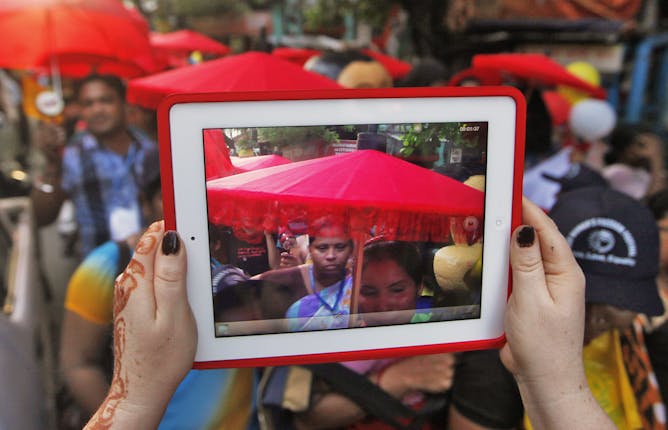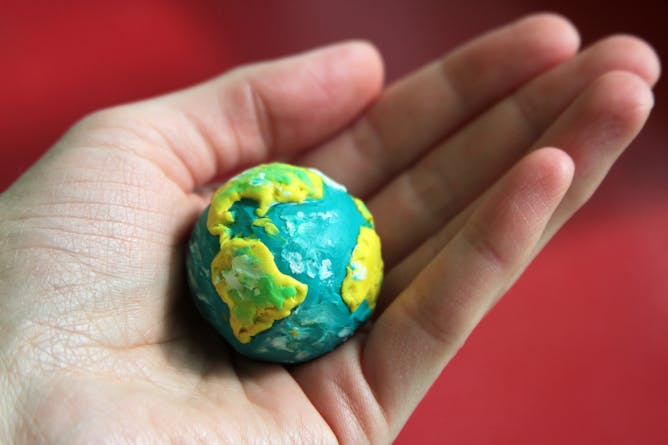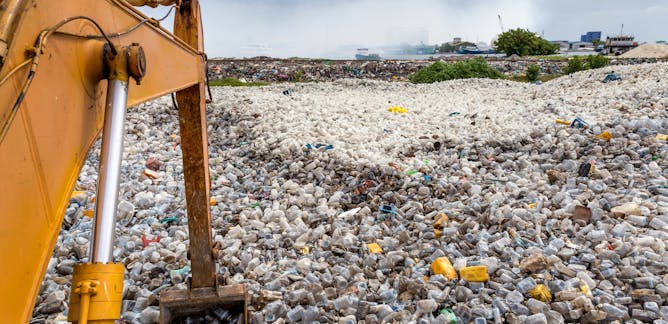|
Sex workers in India oppose an anti-trafficking bill ostensibly meant to protect them, saying Indian lawmakers have inaccurately conflated human trafficking with consensual sex work. Many red-light districts in India actually already have effective local systems in place to prevent women and girls from being exploited — and they’re run by sex workers, not the government. Anthropologist Simanti Dasgupta explains how one sex workers’ union in Kolkata keeps the streets safe for themselves and their clients.
Keeping global warming to 1.5°C will demand that we “geoengineer” the climate in some way, according to a recent IPCC report. But what does this mean, and what interventions are out there? Natural scientist Matthew Watson and social scientist Rob Bellamy debate the pros and cons of various methods devised to block out the sun. They take a close look at the controversies involved, and discuss how research in this contentious area should be governed.
|

Residents of Kolkata’s Sonagachi redlight district at a rally during the week-long sex workers’ freedom festival in 2012.
Reuters/Rupak De Chowdhuri
Simanti Dasgupta, University of Dayton
If India really wants to stop sex trafficking, legislators might consider asking sex workers in Kolkata how they keep the Sonagachi red light district safe and exploitation-free.
|

Ekaterina Karpacheva/Shutterstock.com
Rob Bellamy, University of Manchester; Matthew Watson, University of Bristol
Nations may soon be desperate enough about global warming to consider deliberately engineering the world’s climate.
|
Science + Technology
|

Imogen Whittam, University of the Western Cape
A black hole is an object with such a strong gravitational pull that nothing, not even light, can escape from it.
| |

Benoît Gomis, Simon Fraser University
The history of Paraguay's role in the global illicit tobacco trade, and its implications.
|

Liberty Vittert, Washington University in St Louis
Less than 10 percent of plastic waste has been recycled – a factoid recently crowned statistic of the year.
| |

Elise Facer-Childs, University of Birmingham
The old saying "the early bird catches the worm" might be especially fitting when it comes to peak mental and physical performance.
|
|
|